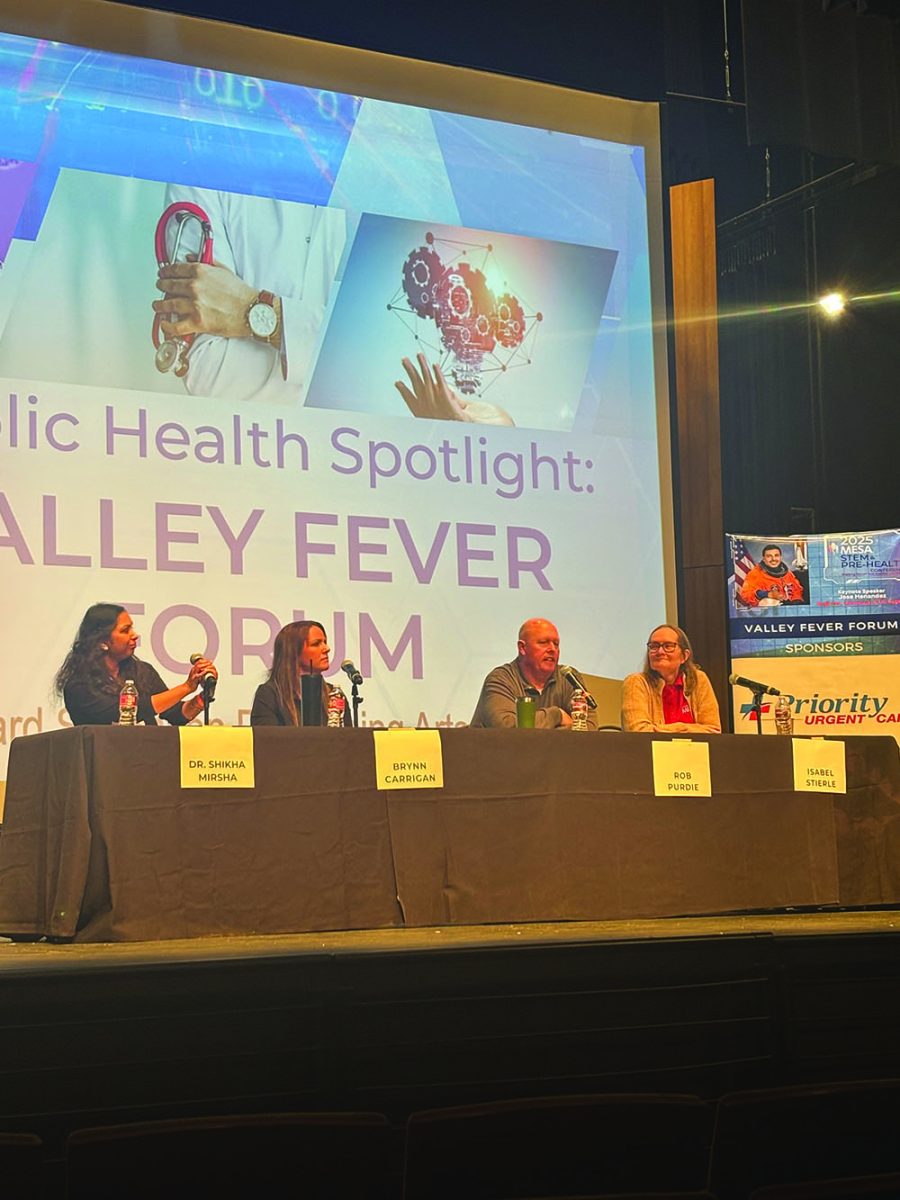BC workshop fights mental illness stigma
October 4, 2017
Bakersfield College’s Student Health and Wellness Center hosted a Movies for Mental Health workshop for students in collaboration with Art With Impact, a charity organization that strives to destigmatize mental illness through art.
The event took place in Student Services 151 on Sept. 13 and provided students with material about resources on and off campus and food and refreshments. Paul Sanbar, a launch coach with Art With Impact, led the workshop and encouraged student involvement.
Sanbar began by discussing “the intersection of how creativity has an impact on us, and how we could use creativity and art as a way to … let the insides out, as a release.” He then asked for students to share movie titles that they had seen that were about mental illness or that explored mental illness through a character. Students mentioned movies such as “The Accountant,” “A Beautiful Mind,” and “Perks of Being a Wallflower” as examples.
Students were then asked to describe how some of the characters from these films were portrayed, how they defined mental illness, and what they considered mental wellness.
The students were then shown four movies that won Art With Impact’s monthly short film contest. The first film was “Beyond Words,” which was created by Sharon Nyarko and won the contest in May of 2017. The black and white film featured a young African-American man struggling with depression, while superimposed phrases like “We don’t believe in therapy,” and “Real men don’t cry,” appeared. The man proceeded to step onto a chair and the sound of a flatline implied he committed suicide. The video ended by saying, “Platitudes do not treat depression,” and informed viewers that depression can affect anyone and to take the illness seriously. What followed was a discussion on stigmas in mental health and how they differ from stereotypes. “Stigmas are always bad, and [they are] false,” said Sanbar.
The next film, “Three,” by Karen Hua, showed three students struggling with different mental illnesses. One student was a tap dancer who was shown to run late due to how time consuming her Obsessive Compulsive Disorder symptoms were. Another young woman dreaded going to class because of her social anxiety and the third student was a young man suffering from bulimia. All three characters were shown to be isolated in their illnesses, and by the end of the video, they all met up in a class, completely unaware of what struggles the others were facing. The audience was then asked to break into groups to discuss what they thought and felt about the film.
Next was an animated video named, “Hanging,” in which the creator, Nick LeDonne, depicted his attempted suicide. Harrowing music played as a young man agonized alone in his room, with words like “fat,” “worthless” and “failure” flashing by. When the character tied a belt to his closet door, an apparition of a woman close to the young man appeared and tried to stop him as well as try to fight back his negative thoughts. Students were once again asked to discuss the movie in groups.
The final film, “Limitless” by Rory McLead, showed a young Australian woman who was avoiding going to a friend’s party due to anxiety and low self-esteem.
Although she felt awkward and thought that she had embarrassed herself in front of a boy, it was shown that he had similar thoughts and they eventually spoke and enjoyed themselves at the party.
BC students Allison Ruger, Caitlin Livingston, and Ruth Sandoval stood up to share their experiences with mental illness, which ranged from bullying, suicidal thoughts, and bipolar disorder, and how they used art to cope.
“When I first started dealing with my anxiety … it kind of seemed like I was the only one who really dealt with it, everyone else around me was okay, or they seemed like they were,” said Ruger while describing how her anxiety isolated her.
Livingston spoke about how she was bullied due to her scoliosis, subsequently wanted to kill herself, and was diagnosed with bipolar disorder.
Sandoval talked about her experiences in an adopted family that did not believe in mental illness, overdosing and being admitted to a psych ward.
The event ended with a discussion of what mental health resources were available on campus and around Bakersfield.






Harold A. Maio • Oct 5, 2017 at 9:45 am
The proper action to take when a “stigma” is voiced on a college campus is to counsel the person voicing the prejudice, whether that person be faculty administration, student, or organization. Never does one allow it to stand any more than one allows voicing racism to stand.
Students have an absolute right to an education free of that prejudice, and educators have an absolute responsibility to provide it.
Harold A. Maio, retired mental health editor
Harold A. Maio • Oct 5, 2017 at 9:40 am
—-BC workshop fights mental illness stigma???
Not to educate people who say there is one? That has the cart before the horse!